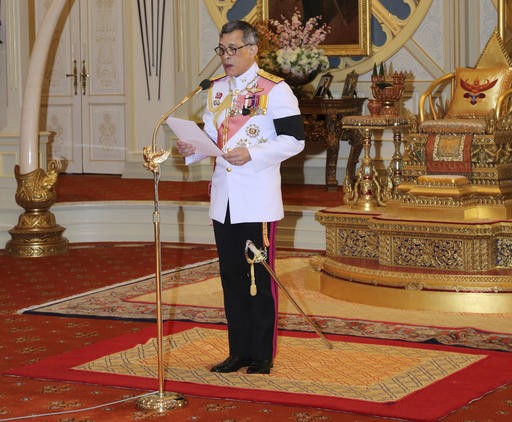Popular Reads
Top Results
Can't find what you're looking for?
View all search resultsPopular Reads
Top Results
Can't find what you're looking for?
View all search resultsThailand lays out ambitious plan to become ASEAN hub
Change text size
Gift Premium Articles
to Anyone
H
aving been led by a military junta since 2014 and seen new King Maha Vajiralongkorn take the throne, Thailand is aiming to transform the country into an ASEAN financial hub through a state-driven innovation and value-based economic model.
Prime Minister Prayuth Chanocha said on Wednesday his administration would start this year with the national plan to be carried out over the next two decades.
The plan aims to establish a sustainable “smart” economy, dubbed “Thailand 4.0.”
Chan-ocha emphasized the new framework would stress on developing human capital and locally-driven industries, while at the same time opening up to foreign investment and experts to encourage growth.
“We cannot just focus on the economy, but also prioritize society so that they can continue to develop and carry out innovation in the future,” Chan-ocha said while opening a seminar titled “Opportunity Thailand” in Bangkok.
Speaking in front hundreds of public and private stakeholders, the prime minister said the transformation would focus “from inside to outside” to ensure locally driven development, as the government is laying down infrastructure, including developing its transportation sector, internet access, as well as human resource to achieve even growth.
Among the largest projects includes the Eastern Economic Corridor, which sees the construction of a major industrial area across 13,000 square kilometers, covering Rayong, Choburi and Chacoengsao provinces.
The government also aims to heavily invest in infrastructure and education to encourage growth in 10 focus industries, including agriculture, automotive, electronics, petrochemical, as well as food and tourism.
Deputy Prime Minister Somkid Jatusripitak said funding for the development had been sourced from the government, public private partnerships, as well as the establishment of the 10 billion baht (US$285.8 million) Competitive Enhancement Fund.
The nation’s economy was in a “pleasant stage,” he noted, while expressing hope of achieving 3.5 to 4 percent growth this year, slightly higher than the 3.2 percent estimated by the World Bank. In 2015, the country experienced 2.8 percent growth.
Putting aside any uncertainty of the military junta under a new monarch after the death of King Bhumibol Adulyadej in October, Jatusripitak assured the country was politically stable while inviting bilateral and multilateral cooperation. “We need a partner who knows us [...] we welcome all nations in this world,” he told the audience, which included foreign business players.
New investment promotions have been implemented, including incentives such as income tax exemption for 15 years and exemptions for imported goods, as the country aims for a “big leap” in the World Bank’s ease of doing business ranking this year.
Currently, Thailand sits at number 43 of the 190 countries listed by the global organization. In ASEAN, the country ranks third overall, after Singapore and Malaysia. Singapore remains the leading financial hub with the number 2 spot globally, followed by Malaysia at number 23. Neighboring Indonesia sits at 91, where the country experienced a whopping 15-spot jump from the previous year.
However, business players, who became panelists at the oneday seminar, expressed concerns over the nation’s capacity to realize the government’s concept.
Kan Trakulkhoon, a member of the board of directors at the Siam Cement Group Company, said the country must invest more in research and development (R&D).
Investment must focus on knowledge, he said, adding that Thailand still fell short in R&D investment in order to experience real change.
“In Thailand 4.0, it calls for knowledge, which is where this country is still lags behind in,” Trakulkhoon said. (jun)







